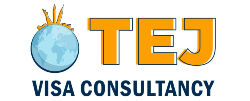Canada’s work permit pathways for dependent children of age

- Canada recently announced a new policy that allows dependent children of temporary foreign workers (TFWs) to be eligible for work permits.
- This new policy aims to fill the gaps in the country’s labor shortage market and provide opportunities for families to live together and merge into the communities of Canada.
- Under this new policy, family members who fulfill the specific criteria will be eligible for work permits.
- It includes common-law partners, spouses and dependant children of work permit holders, which includes
- Jobs in (TEER) include training, Education, Experience, and Responsibilities.
- Applicant of the International Mobility Program
- Applicant of the Temporary Foreign Worker Program
- Have an Open work permit (OWP)
- Includes family members of economic class PR applicants with work permits.
- In this policy, the family members of workers in TEER 4 or 5 jobs or under the wage stream of Agricultural Stream, Seasonal Agricultural Worker Program, and (TFWP) Temporary Foreign Worker Program are now not eligible.
| TEER Category | Requirements | Jobs Example |
| TEER 0 | Management occupation that needs a high level of work experience & education | Advertising, Marketing, Financial Managers, & Public Relations Managers |
| TEER 1 | It requires a University degree | Financial Advisors & Software Engineers |
| TEER 2 | College diploma, supervisory occupations, and apprenticeship training of 2 or more years | Computer Network, Web Technicians & Medical Laboratory Technologists |
| TEER 3 | College diploma, less than two years of apprenticeship training, or more than six months of on-the-job training. | Dental Assistants, Dental Laboratory Assistants & Bakers |
| TEER 4 | High school diploma or some weeks of on-the-job training | Retail Salespersons, Visual Merchandisers, & Home Childcare Providers |
| TEER 5 | It does not require formal training or education but depends on short-term work demonstrations | Delivery Service Drivers, Door-To-Door Distributors & Landscaping And Grounds Maintenance Laborers |
- Note that the TEER categories show the level of training, education, experience, and responsibility needed for a particular occupation mentioned in the table.
- Previously, work permits were only available to spouses and family members of principal applicants (of a work or study permit program) that were either in high-skilled occupations, or international students.
- By extending work permits to the spouses, dependents, and common-law partners of TFWs, Canada aims to improve financial stability and make it easier for families to integrate into their communities, while adding to the Canadian labour force through untapped talent already living in Canada.
- It is estimated that this new policy will allow the families of over 200,000 foreign workers to enter Canada’s workforce.
Eligibility
- A dependent child is a child who is your own, your spouse’s, or your common-law partner’s. For the program eligibility, your child should be:
- Below 22 years old
- Unmarried and without a common-law partner
- Suppose an individual is 22 years old or older. In that case, they can still be considered dependent if they have relied on their parent’s financial support before turning 22 and cannot provide for themselves due to a physical or mental condition. These medical conditions must continue until the process of application is complete.
- If the TFWs program-dependent children want to work in Canada, they must apply for work visas with their families or separately. They may be qualified for an open work permit if a permanent resident or a Canadian resident is sponsoring them or if they are foreign workers in Canada.
- They are not eligible for a work permit if their employer may need to obtain an (LMIA) from (ESDC) Employment and Social Development Canada. It is needed before hiring international workers for a specific job.
- To work in Canada, dependent children must prove the minimum age requirements for their chosen job and the region or territory where they plan to work. A medical examination may sometimes be required before dependent children can begin working in Canada.






